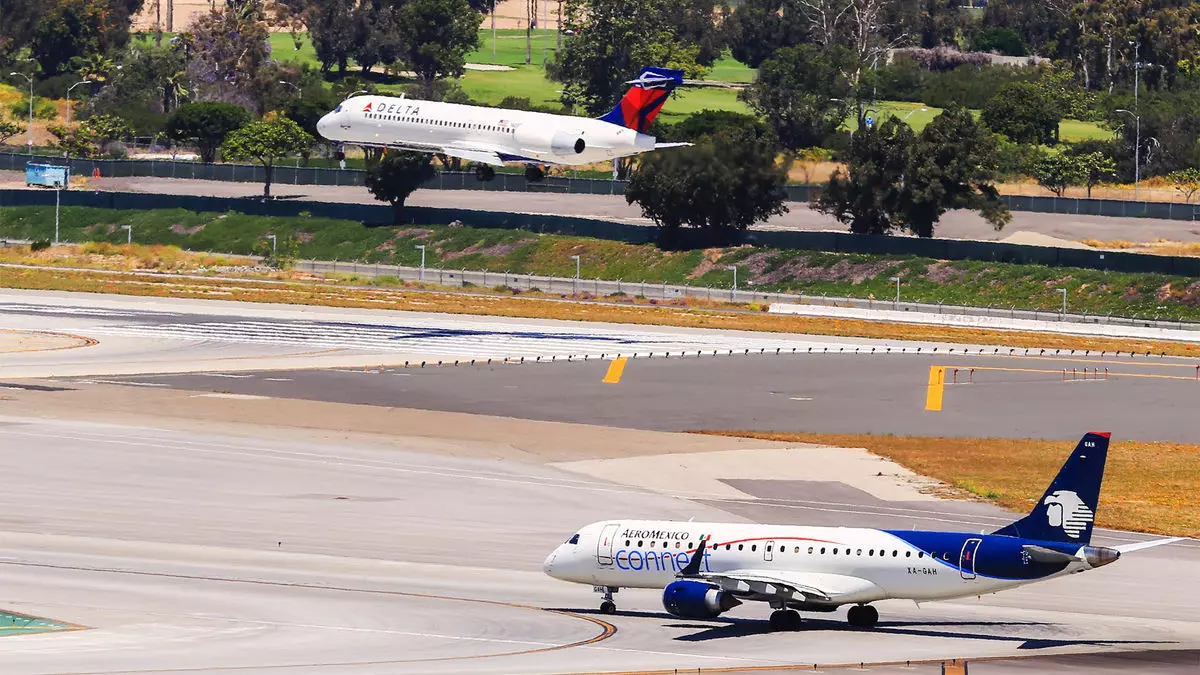The International Air Transport Association (IATA) is hopeful that the inauguration of Mexico’s new president, Claudia Sheinbaum, in October will bring about a more amicable relationship between the United States and Mexico in terms of aviation policies. However, concerns have been raised that Sheinbaum’s proposed policies align closely with those of her predecessor, Andres Manuel Lopez Obrador.
The United States Department of Transportation (DOT) has been contemplating a decision to terminate the joint venture between Delta and Aeromexico, which has antitrust immunity, by late October. Additionally, the DOT suspended the review of the antitrust immunity application of Allegiant and Viva Aerobus a year prior. These actions are linked to the aviation policies implemented by the Lopez Obrador administration, particularly the capacity restrictions placed on the Benito Juarez Airport in Mexico City. These restrictions, including a reduction in hourly flight operations and the termination of cargo services at the airport, have raised concerns about compliance with the open skies air transport agreement between the U.S. and Mexico.
Despite claims by IATA’s regional vice president for the Americas, Peter Cerda, that Sheinbaum has a different perspective on infrastructure and environmental sustainability compared to Lopez Obrador, there is little evidence in her campaign manifesto, “100 Steps to Transformation,” to suggest substantial divergence in aviation policy. While the document advocates for the expansion of the Felipe Angeles Airport, it lacks specific proposals to address the capacity constraints at Benito Juarez as required by the DOT. Moreover, the plan emphasizes the growth of Mexicana, a state-controlled airline, and the consolidation of Felipe Angeles as a cargo hub.
Aviation consultant Fabricio Cojuc has expressed skepticism about the feasibility of proposed projects to revitalize Benito Juarez Airport, indicating a lack of concrete plans or evidence to suggest immediate action. The current capacity restrictions have not yet prompted U.S. airlines to reduce operations in Mexico City, but they have hindered potential expansion opportunities for carriers like Southwest, JetBlue, and Frontier. The transition of power in Mexico, coupled with the perceived continuity in aviation policies between Sheinbaum and the outgoing administration, could prompt the DOT to make unilateral decisions regarding aviation treaties and antitrust immunity agreements.
As a mediator between the U.S. and Mexico, IATA is aiming to facilitate discussions that would lead to increased capacity at Benito Juarez Airport. The focus is on fostering sustainable and efficient growth in the aviation sector while maintaining strong bilateral relations between the two countries. The future of U.S.-Mexico aviation relations under the Sheinbaum administration hinges on collaborative efforts to address existing challenges and promote a more open and transparent approach to air travel.


Leave a Reply